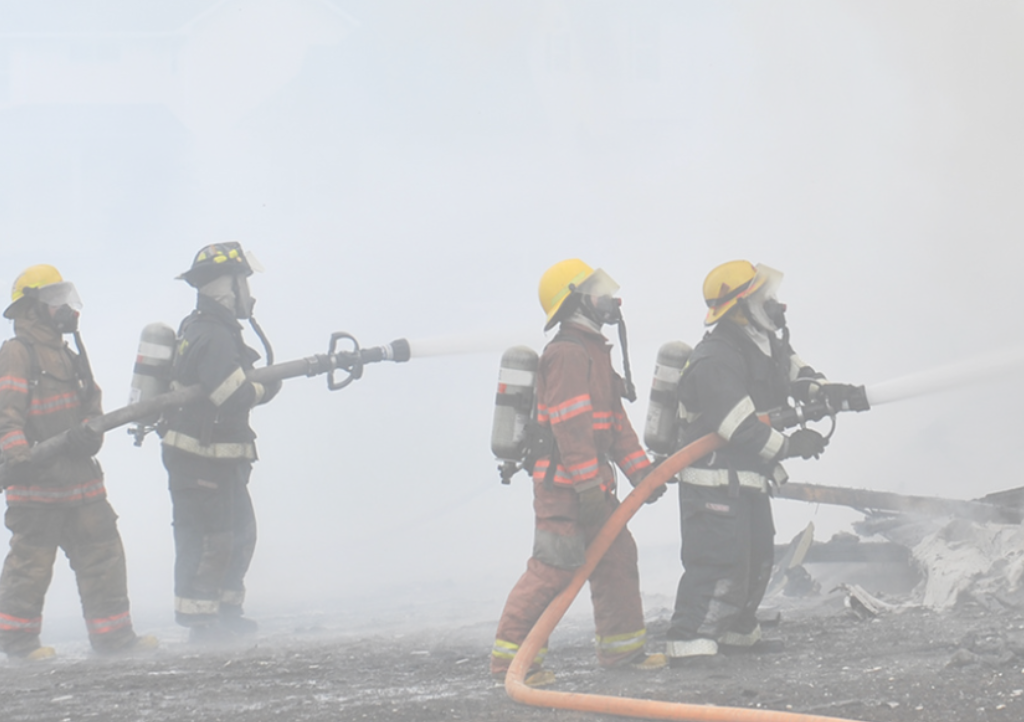Menu
Close

PTSD Awareness Day: A Tribute to First Responders
Jun 27, 2024
Navigating the challenging world of first responders requires more than just physical stamina; it also requires a strong psychological framework. Studies have found that being faced with continuous intense and traumatic situations associated with this type of work can impact wellbeing. Pre-pandemic statistics indicate 12% to 23% of first responders will experience PTSD at some point in their lives, depending on the specific profession and where they are located. Today is an opportunity to show our appreciation for these many heroes throughout our country.
Understanding PTSD is crucial. It’s a trauma and stressor related disorder that can develop from the intense situations people experience and witness in traumatic, dangerous, or frightening situations first responders frequently face in the line of their work. Common symptoms include unwanted thoughts or dreams of the trauma, physical responses (such as difficulty breathing), strong negative emotions (such as fear, anger, guilt or shame), and a loss of interest in doing things once enjoyed.
Building Resilience
At the heart of mitigating PTSD is the concept of resilience. Resilience is a process of navigating psychological, social, cultural and physical resources to sustain or regain wellbeing. Programs like Resilient Minds® are key, offering a comprehensive 4R Action Toolkit® and proactive wellbeing tools to build and maintain resilience. Designed for first responders by first responders the course objectives of RM are:
- Recognize stress as a building block of resilience.
- Plan proactive strategies to mitigate stress/trauma.
- Develop awareness of the immediate and long-term effects of stress/trauma.
In addition to programs such as Resilient Minds®, it is important to be aware of additional resources available to support your wellbeing from stress and trauma related events.
Professional Support
If you have questions or concerns about post-traumatic stress disorder, start by talking to your doctor or a mental health professional. PTSD is usually treated with some combination of psychotherapy, medication and self-management. As other mental illnesses like depression are common when people experience PTSD, your exact treatment will depend on your own situation. Judy Gray, CMHA Director, Mental Health Promotion and Resilient Minds® emphasizes the importance of this step, saying, “Seeking professional help is both a proactive and responsive measure in taking control of your mental health. Mental health is as significant as any person’s physical health and should be given equal attention. It is not something people should feel ashamed of seeking out.”
Mindfulness and Relaxation: The Daily Practice
Incorporating mindfulness and relaxation techniques into your daily routine can significantly reduce stress and anxiety. Techniques like meditation, deep breathing, and yoga can help maintain a calm and focused mind and improve problem solving skills which is essential for those in high-stress roles.
Resilient Crews: The Strength of your peers
Know your crews and look for opportunities to maximize and leverage individual skills. Mentorship works both ways. Share your knowledge and ask for guidance from co-workers. Appreciate each other for good work or other support. Talk with your crew after a call, set an example by sharing some of your feelings and experiences.
Peer support has been proven to help by simply lending an ear, and through validation and encouragement, will create and provide a safe and nurturing environment for those struggling.
Build a support network: Support brain functioning.
Friends, family, peers, clubs, organizations, CISM team, doctors, spiritual leaders, volunteering – relationships and connections foster resilience and reduce the risk for developing psychological illness. Connect with others, with our surroundings and with ourselves.
Self-care: It pays off
- Good nutrition can improve mood and cognitive function, while also supporting and building a healthy body.
- Self-compassion boosts empowerment.
- Low intensity exercise can help reduce stress, lower cortisol, improve psychological wellbeing, and improve sleep quality.
- Steam/sweat releases toxins and can have physical and psychological benefits.
- Build variety into self-care practices to improve resilience.
Canadian Mental Health Association’s (CMHA) Resilient Minds® Building the Psychological Strength of Fire Fighters (English and French) is an evidence-based, trauma and violence informed, peer-to-peer training program designed to enhance the personal resilience of fire fighters and the collective resilience of fire services. It has quickly become a sought-after program with adaptations completed for Wildland Fire Fighters, Indigenous First Responders (English and French) E-comm 911 Emergency Communications Operators, and Community Workers.
Resilient Minds® builds resilient teams and services – educating, empowering and equipping fire fighters and first responders with the skills and resources to grow and maintain psychological wellness. The training inspires participants to recognize and respond to psychological matters in the workplace, promoting a shift to a supportive, mentally fit culture.
For further information and to book a course please visit https://cmha.ca/resilient-minds, or email [email protected]
